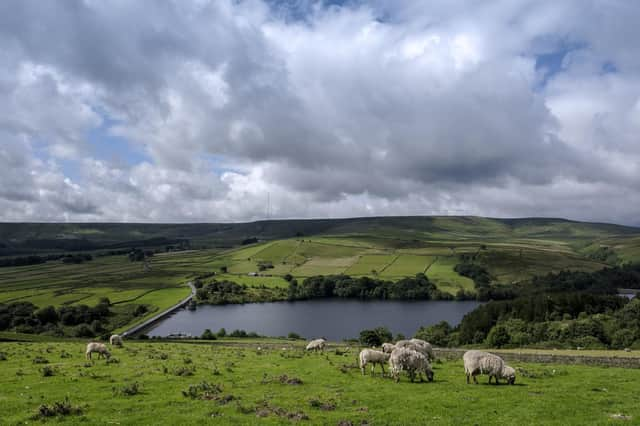Direct payments will be split into two installments to ease farmer cashflow as financial pressures increase


The Department for the Environment, Food and Rural Affairs (Defra) said in order to support farmers with cost pressures caused by demand and instability across the globe it would be changing the way Direct Payment Scheme (BPS) payments are made during the agricultural transition period.
The transition period which started in 2021 and will run until 2027, sees the Direct Payment system part of the EU Common Agricultural Policy being phased out and the new Environment Land Management Scheme being brought in.
Advertisement
Hide AdAdvertisement
Hide AdFriday’s announcement stated that for the duration, direct payments will be paid in two instalments each year in a bid to ease cashflow issues with the first being made in July.
Making the announcement, Environment Secretary George Eustice said: “While increasing farm gate prices may mean farm profitability remains stable, we recognise the short-term pressures on cash flow.
“We have decided to bring forward half of this year’s BPS payment as an advance injection of cash to farm businesses from the end of this July. It will give farmers some additional cashflow earlier in order to provide some confidence. We will also make this a permanent change to the way we pay BPS in future with twice-yearly instalments going forward.”
Mr Eustice added that while the UK was part of the European Union this initiative would not have been possible due to the way audits worked and the need to enforce the three-crop rule during the summer.
Advertisement
Hide AdAdvertisement
Hide AdThe deadline for submitting Basic Payment Scheme 2022 applications is May 16 and, Defra said, under these plans, farmers with eligible applications will receive the first payment of 50 per cent from the end of July and the second from December.
With agricultural commodities closely linked to global gas prices, farmers are facing rising costs for inputs including manufactured fertiliser, feed, fuel and energy.
Due to heightened worldwide demand, by February the price of gas had quadrupled on the previous year, and with the instability caused by the Russian invasion of Ukraine that price has risen further.
Output prices, particularly wheat, are also high and from analysis published by the Agriculture and Horticulture Development Board (AHDB), Defra said it is clear farmers should continue to buy their inputs as usual with the steps government is taking to bring forward payments allowing them to do so.
Advertisement
Hide AdAdvertisement
Hide AdRural Payments Agency chief executive, Paul Caldwell, said bringing forward half of this year’s BPS payment from the end of July will be a welcome boost to cash flow for many farm businesses.
“This is not just an opportunity to support farmers here and now through a cash injection, it’s a permanent change to bring direct payments in line with what will be a more regular payment system under the new environment land management schemes.”
A package of measures to support farmers was announced in March, including a delay to changes to the use of urea fertiliser by at least a year; revised and improved statutory guidance on the Farming Rules for Water; slurry investment grants to help meet those rules; and further details of the Sustainable Farming Incentive which will reward farmers for manufacturing more organic-based fertiliser products.